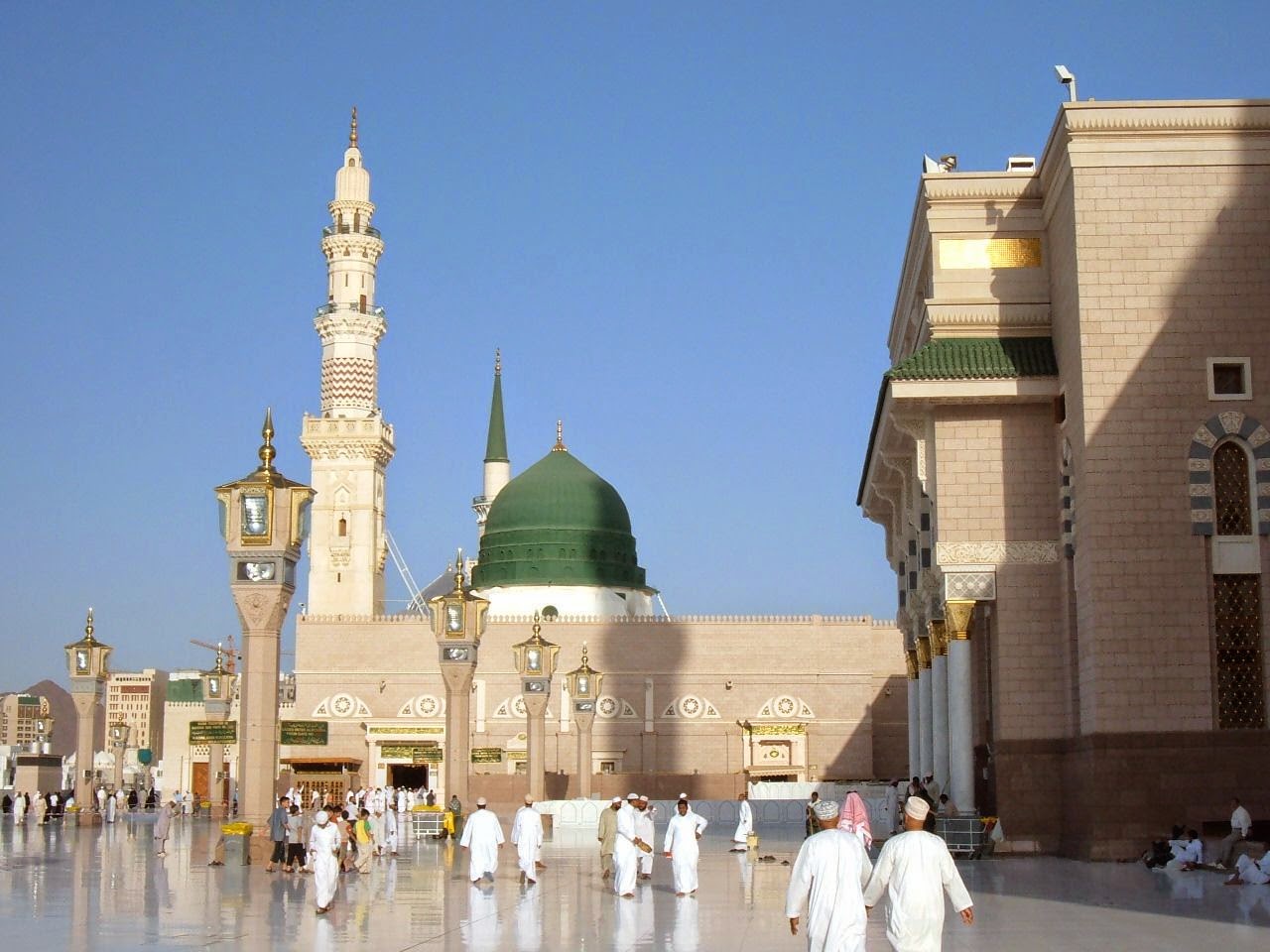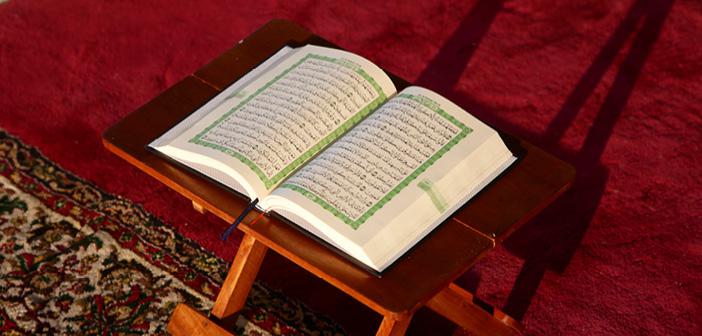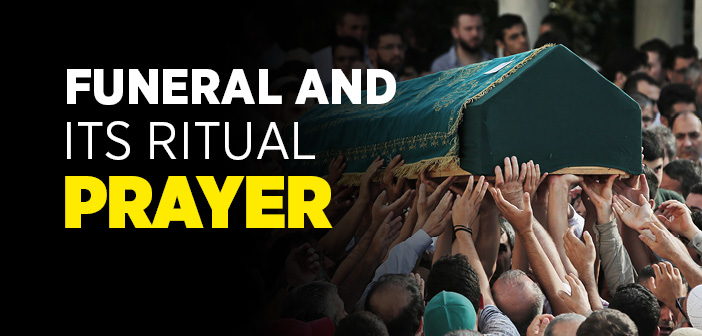
Belief in The Prophets of Allah
What is belief in the prophets of Allah?
Prophets are the guides for leading to, finding and remaining on the straight path.
As humans are prone to go astray from the straight path, Allah protected them from being further misled by sending prophets. Thus, Allah, through the holy books and prophets, informs humans about their responsibilities and limitations, and made them accountable; and Allah gave this opportunity to every people.
It is said in the Qur’an:
“For We assuredly sent amongst every people an apostle (with the command), ‘serve Allah, and avoid evil’....” (Nahl, 16:36).
The purpose of religion is to help humans eliminate or reduce the negative drives of the self, and help them enhance the positive ones. However, in order to actualize this target humans need a “perfect example.” This is one of the reasons why Allah sent prophets to humanity, to be perfect examples for humans.
Allah says in the Qur’an in this regard:
“We sent not an apostle, but to be obeyed, in accordance with the Will of Allah...” (Nisâ, 4:64).
Prophet Muhammad (J) is the zenith of perfection. That is why Allah says in the Qur’an:
“You have indeed in the Apostle of Allah a beautiful pattern (of conduct) for any one whose hope is in Allah and the Final Day, and who engages much in the praise of Allah.” (Ahzab, 33:21).
So, everybody is responsible for the belief in Allah and being a good servant. Though Allah promised His messengers paradise in the Hereafter, they too, were held responsible for fulfilling the mission of prophethood. This is told in the Qur’an as follows:
“Then shall we question those to whom Our message was sent and those by whom We sent it.” (Araf, 7:6).
As Prophet Muhammad (J) was duly conscious of this responsibility, he asked his companions of over a hundred thousand during his Farewell Sermon before his death:
“O people! You will be asked about me tomorrow; what would your words be?”
The companions answered him en masse:
“– You have accomplished your mission to convey the message of Allah. You have advised and preached to us!”
Upon their words the Prophet (J), the light of existence, said:
“O my companions! Have I conveyed the message?..
Have I conveyed the message?..
Have I conveyed the message?..”
The Prophet (J) had their testimony affirmed by repeating his question three times and then pleaded for Allah’s testimony:
“Be witness O Lord!..
Be witness O Lord!..
Be witness O Lord!..” (Bukhari, Ilm, 37).
As every people has been sent a prophet, the number of prophets have been numerous. It is said in the Qur’an:
“Of some apostles We have already told you the story; of others We have not...” (Nisâ, 4:164).
According to some narrations, the number of prophets is one hundred and twenty four thousand. The Qur’an mentions by name only the twenty-five most prominent. Some of them were given a new shariah (canonical law), but many continued the previous prophet’s shariah.
Prophets were given the following three major missions:
- 1. Recite the verses of Allah to their people,
- Lead people to purify their nafs (ego),
- Study the Divinely revealed Book and learn wisdom to lead people to the straight path.
The existence of prophets is essential for our well-being. They combine many models of good personalities in one body; and they harmoniously lead the souls of human beings to their Lord.
They were prepared and chosen by Allah. Thus, they have different features endowed by Allah. These features are as follows:
Truthfulness: Prophets always maintain the feature of righteousness. Their actions are in complete accord with their words. It is impossible for them to lie. Their truthfulness was even confirmed by those who did not believe in them. Here are a few examples of many regarding their feature of honesty:
Heraclius, the emperor of Byzantium, in order to learn about the Prophet Muhammad (J), questioned Abu Sufyan, who was at that time without belief. One of the questions was:
“– Has he ever dishonored his word?”
Though Abu Sufyan was then opposed to the Prophet (J), he answered favorably regarding the Prophet (J):
“– No! He always abides by his word!”
Ubay bin Khalaf was a zealous enemy of Islam; so much so that he, before the emigration to Madina, used to tell the Prophet (J):
“– I am breeding a strong horse, and I will one day kill you while riding that horse.”
And the Prophet (J) used to answer him:
“– I will -Allah willing- kill you!”
While the battle of Uhud was going on Ubay bin Khalaf was looking for the Prophet (J) by saying:
“– If I cannot find him today, I will be doomed!”
When he came close to the Prophet (J) the Companions wanted to behead him. Yet the Prophet (J) called to them:
“– Let him come to me!”
When he came near, the Prophet (J) got a spear from the hand of a Companion and threw it to him. The spear glanced off Ubay’s neck, but it was enough to cause him to tumble from his horse. He was so shocked that he hastily ran back to the line of his army screaming, “– I swear that Muhammad has killed me!..”
The idol-worshippers who looked at his injury said:
“– This is only a scratch!”
Still that did not calm him and he said:
“– While in Mecca Muhammad told me: ‘I will definitely kill you!’ I swear that I will die even if he spits at me!..”
Ubay kept howling. Abu Sufyan told him off saying:
“– You are not supposed to howl about this tiny scratch.”
Ubay answered:
“– Do you know who has done this to me? It is Muhammad. I swear by Lât and Uzzâ that if this scratch is distributed to the people of Hijaz they would all perish. Muhammad told me in Mecca: ‘I will definitely kill you.’ I then got convinced that I would be killed by him. As he said that, I would surely be killed by him even if he spat at me.”
Eventually, Ubay, who was an enemy to the Prophet (J), died a day before returning to Mecca.
This event is an important object lesson. Even an ardent idol-worshipper who knew the Prophet (J) quite well believed how powerful his words were.
Trustworthiness: Prophets are the most trustworthy of humanity. Even non-believers give credence to what they say. Thus, even the idol-worshippers regarded Prophet Muhammad (J) as worthy of confiding in; they called him Muhammad the trustworthy, and they entrusted him with their belongings more than their kinsfolk. So much so that the Prophet (J) had the deposits of some idol-worshippers with him even up to the time of his migration to Madina. Though he was in danger of his life he asked Ali , his nephew, to stay in Mecca to hand them over to their owners.
Intelligence: Prophets are distinguished humans in terms of intelligence and awareness. They have strong mental faculties, good judgement, and persuasiveness. These features are observed differently in each prophet. Prophet Muhammad’s (J) life has many examples of this feature.
Before the revelation the Ka’bah was renovated by the the tribes of Mecca. Yet, a controversy occurred about who would have the honor of placing the Black Stone in the corner of Ka’bah. As they were about to clash, one among them made a suggestion:
“– Stop fighting! As we cannot solve this matter among us let us appoint the first person entering the gate as a judge!”
As the person entered, a smile covered their faces because the one entering was Muhammad, “the Trustworthy.”
After the Prophet (J) learned about the dispute, he selected a representative from each tribe. He then spread his robe on the ground and asked them to place the Black Stone on it and the representatives each to hold a corner of the robe. Thus, each tribe was able to have the honor of carrying the Black Stone. Then, he himself, placed the Black Stone in its place while they were holding the robe. By thus displaying a good example of foresight and intelligence, the Prophet Prophet (J) averted a probable fight.
On the other hand, the wisdom that he exhibited in the battles for Islam and the foresight, particularly in the battle of Hudaybiya, the victory in Mecca and Hunain and the way he dealt with the people of Taif, and the justice displayed are all lofty and beyond the reach of any human.
Communication: Prophets convey the Divine commandments to humans as they are ordered. In their convenance they neither add to nor subtract from the transmission.
Innocence (purity): Prophets are saved from every kind of disobedience and sin. However, as they are to be aware that they are also weak beings and lest they claim to be a deity they sometimes make small human mistakes. There is another aspect of wisdom in that as well. If they were to be infallible in every respect, humans would have in their minds an excuse for not following their example by thinking that they would not be capable enough to abide by the divine orders and prohibitions. Thus, prophets are not to be thought of as from among the angels, and the Qur’an touches on this subject in these respected verses:
“Say ‘If there were settled, on earth, angels walking about in peace and security, We should certainly have sent them down from the heavens an angel for an apostle.’” (Isra, 17:95).
“Nor did we give them bodies that ate no food, nor were they exempt from death.” (Anbiyaa, 21:8).
THREE ADDITIONAL QUALITIES OF PROPHET MUHAMMAD (PBUH)
In addition to these five qualities of the prophets there are three additional qualities of Prophet Muhammad (J). These are as follows:
- 1. Prophet Muhammad (J) is the beloved of Allah. He is superior to all others. He is the most honored of humanity. Nadjib Fadhil Kisakurek, the Turkish poet describes the Prophet (J) with these words:
Your aroma was filtered in time immemorial,
You are honey, existence is the honeycomb...
- 2. Prophet Muhammad (J) has been sent to all humanity and the jinn. Namely, he is the prophet of the two dominions. And the religion he brought is permanent until the end of the world. Other prophets were sent to a certain people for a certain period. Therefore, while the miracles of all other prophets were valid for their own periods, the miracles of Prophet Muhammad (J) have no time limit. Among them the Qur’an is the major one that will remain until the end of the world.
- 3. Prophet Muhammad (J) is the last prophet of Allah. However, taking into account the saying of the Prophet (J): “I was a prophet when Adam was between the water and the soil” he is the “first” on account of creation as he was created to be a prophet for both the world of humanity and jinn.
Apart from all these qualities, Prophet Muhammad, (J) was granted the high station of “Makam-i-Mahmud” and the greatest intercession. For this reason, the merciful Prophet (J) will ask forgiveness from Allah for the sins of his nation on (ummah) the Day of Judgment and this intercession will be accepted. The words of the Qur’an,
.”.. If they had only, when they were unjust to themselves, come unto you and asked Allah’s forgiveness, and the Apostle had asked forgiveness for them, they would have found Allah indeed Oft-returning, Most Merciful.” (Nisa, 4:64), indicate how important and effective the Prophet Muhammad’s intercession would be on the Day of Judgment.
The following account of the Prophet (J) also gives good news to our hearts:
“On the Day of Judgment people will go to Adam and request him to ask Allah for their forgiveness saying:
“– Please ask Allah for our forgiveness!”
Adam answers:
“– I am not in that position; you had better go to Abraham! He is the close friend of the Lord...”
When they go to Abraham he tells them:
“– I am not in that position; you had better go to Moses! He is the one who spoke to Allah...”
They go to Moses. He tells them:
“– I am not in that position; you had better go to Jesus! He is the spirit and the word of Allah...”
When they go to Jesus he tells them:
“– I am not in that position; you had better go to Muhammad!”
Then, they come to me and I tell them:
“– Yes, I am in that position.”
Then I ask permission to enter the presence of Allah and permission is given. I am then inspired by some words of praise that I now do not know; I praise Allah with these words and prostrate. By then I am told:
“O Muhammad, raise your head! Say now; Your words will be heard! Ask now; Your requests will be granted! Ask for forgiveness now; Your intercession will be accepted!”
Then I say:
“O my Lord! I want my nation, I want my nation!..”
Allah says:
“O Muhammad! Come and take everyone who has faith in his heart as much as a mustard seed out of hell.”
I come out and act as I am told. Then I return to thank Allah with the words of praise as I earlier did. And I prostrate again. And Allah says again:
“O Muhammad, raise your head! Say now; Your words will be heard! Ask now; Your requests will be endowed! Ask for forgiveness now; Your intercession will be accepted!”
I speak again:
“O my Lord! I want my people, I want my people!..”
Allah says:
“O Muhammad! Come and take everybody who has faith in his/her heart as much as a mustard seed out of hell.”
I come out and act as I am told. Then I return to thank Allah with the words of praise as I earlier did. And I prostrate again. And Allah says again:
“O Muhammad, raise your head! Say now; Your words will be heard! Ask now; Your requests will be granted! Ask for forgiveness now; Your intercession will be accepted!”
I speak again:
“O my Lord! I want my community, I want my community!”
Allah says:
“Come and take everybody who has faith in his/her heart even much smaller than a mustard seed.”
I come out and act as I am told. Then I return to thank Allah for the forth time with the words of praise as I earlier did. And I prostrate again. And Allah says again:
“O Muhammad, raise your head! Say now; Your words will be heard! Ask now; Your requests will be granted! Ask for forgiveness now; Your intercession will be accepted!”
I, this time, say:
“O my Lord! I ask your permission for everyone who had said ‘There is no deity, but Allah!..’”
Allah says:
“I swear by My Grandeur and Highness that I will take everybody who had said ‘There is no deity, but Allah’ out of hell.” (Bukhari, Tawhid, 36).
*
In short, prophets had unsurpassed features and they became guides for humanity, and their people were ordered to believe in and follow them: Allah, Most High, orders:
“(Say O Believers): ‘We believe in Allah, and the revelation given to us, and to Abraham, Ismail, Isaac, Jacob, and the Tribes, and that given to Moses and Jesus, and that given to (all) Prophets from their Lord: we make no difference between one and another of them: and we bow to Allah (in Islam).’” (Baqara, 2:136).
“Those were the (prophets) who received Allah’s guidance: follow the guidance they received...” (Anam, 6:90).
Those who obey this divine command gain happiness and salvation both in this world and in the Hereafter. They get an honorable position in both worlds. Allah says:
“All who obey Allah and the Apostle are in the company of those on whom is the Grace of Allah, of the Prophets (who teach), the Sincere (lovers of Truth), the Witnesses (who testify), and the Righteous (who do good): Ah! What a beautiful Fellowship!” (Nisâ, 4:69).
Those who disobey this divine command are the unfortunate ones in both worlds:
”.. So travel through the earth, and see what was the end of those who denied (the Truth)!” (Nahl, 16:36).
“Any who denies Allah, His angels, His books, His Apostles, and the Day of Judgment, has gone far, far astray.” (Nisâ, 4:136).
In the past, indeed, many unwary people who were deceived throughout history by the transitory glitter of this world have gone astray from the bright horizons that the Prophets of Allah pointed out, and they were doomed. And they even led their people to destruction. They foolishly fell for the dreadful debris of this world and they became wretched. They, having no comprehension about the wisdom and mystery of creation, imitated the behavior of animals, and in the end they, facing the Divine Wrath, were destroyed.
It is stated in th Qur’an:
“But how many (countless) generations before them have We destroyed? Can you find a single one of them (now) or hear (so much as) a whisper of them?”
“Do they not travel through the earth, and see what was the end of those before them? They were superior to them in strength: they tilled the soil and populated it in greater numbers than these have done: there came to them their Apostles with Clear (Signs), (which they rejected, to their own destruction): it was not Allah who wronged them, but they wronged their own souls.” (Rum, 30:9).
Allah says about these negligent people who persisted in infidelity in spite of countless Divine signs and warnings:
”.. So away with a people that will not believe!” (Muminun 23:44).
In short, all prophets are blessed personalities who guided humanity on the basis of the unity of Allah. Denying a single one of them whose prophethood is established by the Qur’an takes the person out of the circle of faith. For example, a person who denies the prophethood of Jesus is not considered to be a believer. All prophets communicated the same principles, and it was all the religion of Islam. The Last Prophet, Muhammad (J), is the master of all prophets. He will band his people together under the “banner of praise” on the Day of Judgment. This banner will also cover the previous prophets accompanied by their people who believed their prophets found the straight path. Namely, all the prophets and their people who believed in them until their communicated orders were abolished by Allah will take their place among the “People of Muhammad.”
“And Peace on the apostles! And Praise to Allah, the Lord and Cherisher of the Worlds.” (Saffat, 37:181-82).









